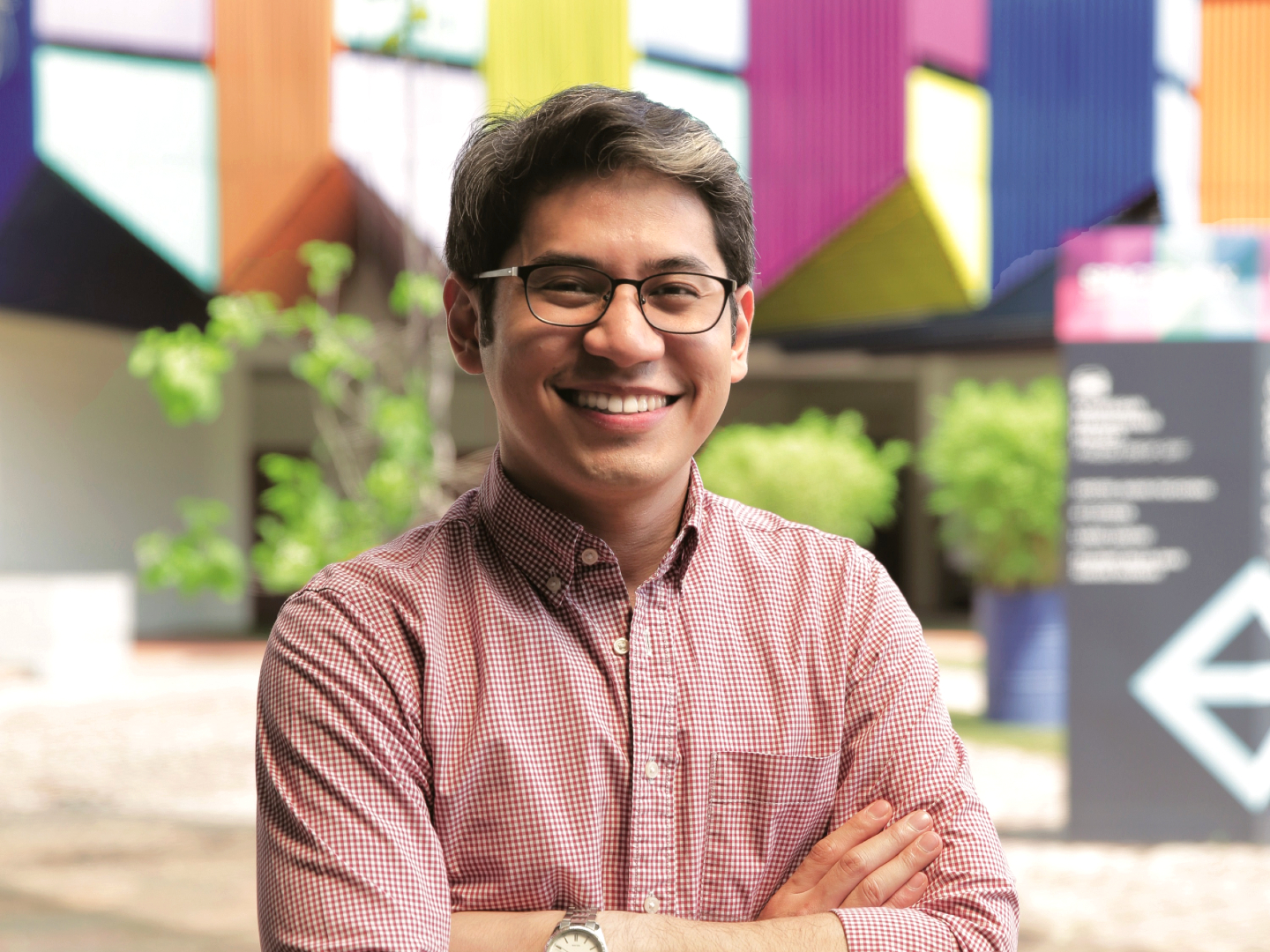
Ahmed: The idea and culture is slowly being accepted and embraced by Malaysians (All photos: Impact Integrated)
The internet has transformed the way we live — from how we learn to how we form and maintain relationships. It has removed communication barriers, allowing users to interact instantaneously via technology. But at the same time, it has also erected walls between the adaptable and the laggardly. And because of its rapid advancement, the longer you struggle, the higher the walls rise.
Its pervasiveness may not be welcome by some, especially those who value face-to-face interactions and are averse to change. But every new generation will be saturated with more tech than the last and its momentum will only increase in time. As such, generational differences become more stark, and conciliation, more difficult.
This is not to say that any side is at fault. The root of the battle between the generations stems from dissimilar upbringing and lack of empathy. Running barefoot on the field playing with the other kids in the neighbourhood is childhood bliss, but so is achieving a winning streak on a video game with friends over the weekend.
Ahmed Faris Amir recalls the time when he experienced both. “I’m a Gen Y, so I was in the middle of it all,” says the 33-year-old CEO of Impact Integrated, an agency aimed at spurring youth-driven social impact through multi-stakeholder models. “I played football when I was young but I would also go to my friend’s house to play PlayStation.”
esi_launch.jpg
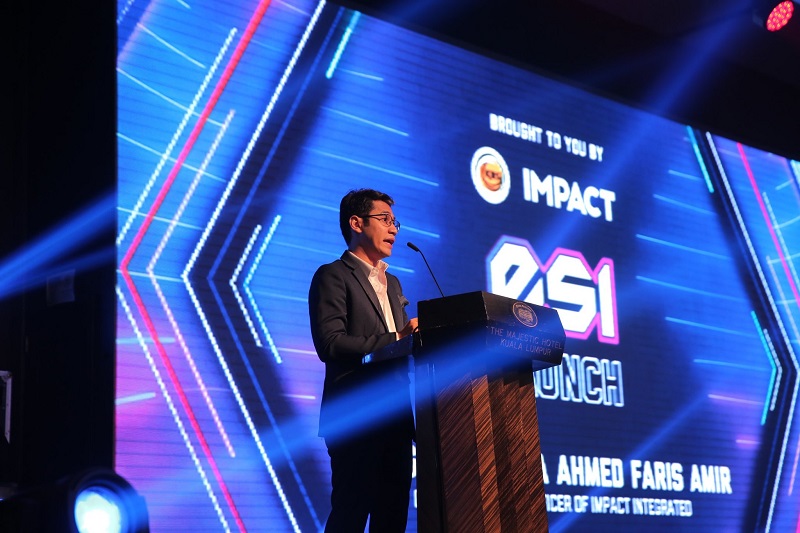
Being caught in between made him understand both sides. The older generation who grew up playing sports outside are often shocked to find out that kids would rather play video games. The younger folk, meanwhile, cannot understand why adults belittle their hobbies when it is what they have known most or all of their lives. “The senior generation who were not exposed to that cannot relate,” Ahmed sympathises. “At the same time, the younger generation questions, ‘why are you telling us this is not okay?’ So, there’s a bit of a clash here.”
A generalist by design
Impact Integrated was formed after the dissolution of 1Malaysia for Youth (1M4U), an initiative created to encourage volunteerism among Malaysian youth when Barisan Nasional was still governing the country. “At the end of 2018, after the government changed, they were looking to remodel 1M4U,” Ahmed explains. “It was quite popular back then but it was also plagued by political scandals. So, they wanted to [refine] it a little bit and were looking for young entrepreneurs who had done some things that fitted the mould they were looking at.”
In 2019, 1M4U, which was overseen by the Prime Minister’s Office, rebranded as Impact Integrated and was placed under the purview of the Ministry of Youth and Sports (KBS). It loosened its grip on volunteerism and focused more on equipping young Malaysians to take part in catalysing impact for social development. Ahmed was brought in as deputy CEO the same year.
“When I was deputy CEO, I thought I would only be doing it for six months, like a consulting gig,” he admits. Prior to Impact Integrated, Ahmed worked across different industries, gleaning knowledge from sectors that interested him while picking up diverse skillsets along the way. He was a former debater and was the chairman of the Malaysian Institute for Debate and Public Speaking. “My prior experience was in human capital management, specifically in debating,” he says. “So while doing that, I got into events and from there, I got into F&B. I also co-founded a fashion tech start-up called Ombré. I was doing a number of things simultaneously.”
impact_integrated.jpg
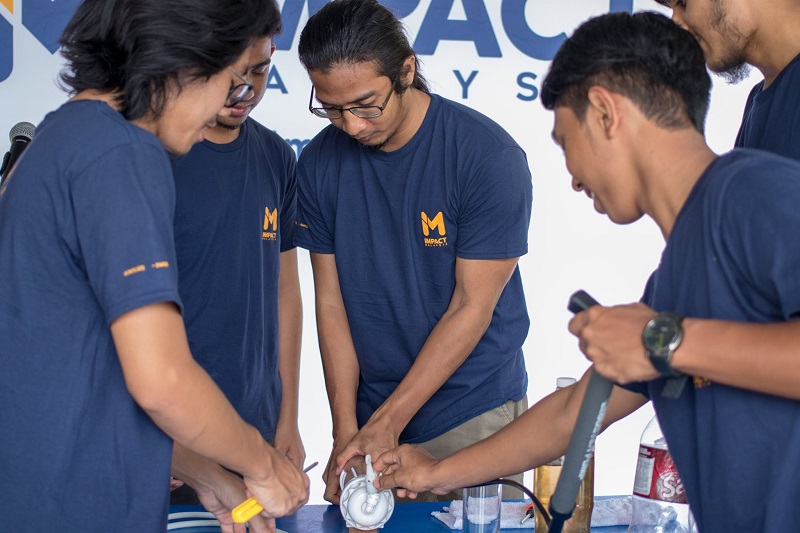
Even while he was pursuing his bachelor’s degree in physics (“Mum believes that if it’s not a science degree, it’s not a degree”), he would dabble in various activities. “Beyond debate, I was also organising and running events, into making money and doing extracurricular activities,” he shares. In fact, his LinkedIn profile opens with “A generalist by design”, which perfectly sums up the all-rounder. When the CEO position opened up, Ahmed was encouraged to apply as an internal candidate and he got the job.
Youth is the future
To empower youths, Impact Integrated adopts a multi-pronged approach, which is evident from the five brands under its banner. Impact Malaysia is the main initiative and connects youths with third-sector practitioners like non-governmental organisations and social enterprises to run and measure the impact of social projects. The second is Rakita, a radio station that focuses on the local indie music scene, while the third is Spacerubix, a modern sports complex and event space in Puchong. The fourth is Picksum, an e-commerce marketplace featuring curated offerings to support youth — especially non-urban — entrepreneurs. And lastly, the newest addition to the family is Esports Integrated (ESI), a national initiative created to catalyse the esports ecosystem in Malaysia.
Previously, the closest esports démarche was split among three government bodies: National Sports Council (MSN); Pesuruhjaya Sukan (PJS), a sports registrar; and Esports Malaysia (ESM), now known as the Malaysia Esports Federation (MESF). All three bodies had a hand in nurturing esports, albeit taking on different roles in its buildout, which complicated the operation. “When the bodies are working in silos or not working seamlessly with one another, that’s when you need another person to facilitate the process,” says Ahmed. “That’s where ESI comes in. It plays the role that connects and centralises all three. It’s the first esports initiative of its kind owned by KBS. We are not MSN, we don’t pretend to be them; we are not MESF, they deal with other associations in Malaysia; and we are not PJS, we don’t have the authority to become regulators. That is why [we use] the term ‘catalyst’.”
One of Impact Integrated’s strategic positioning points is that it is a company limited by guarantee. “We are close enough to the government and carry out its agenda,” he explains. “So for all innovative programmes by KBS for the youth, we step in and make them sexier, younger and more palatable for the general public. At the same time, we are also able to break down bureaucracy because we are more private in a sense, more independent and flexible, making it easier and accessible for the general public.”
For example, if an event organiser or an esports game publisher wants to set up a meeting with the minister, the bureaucratic process is going to take a while. Impact Malaysia, however, has greater leeway.
esi_x_techninier.jpg
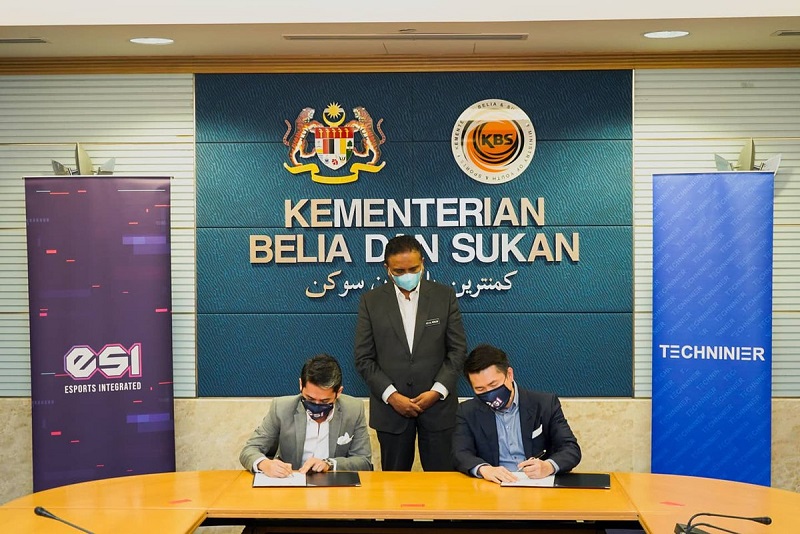
The world of esports
Although ESI is young, having only launched last October, it has laid out short and long-term milestones to achieve in the next couple of years. When Syed Saddiq Syed Abdul Rahman served as the Minister of Youth and Sports in the Pakatan Harapan administration, he released a five-year strategic blueprint for the development of esports in Malaysia. “It is the basis of our road map and, in fact, our proposal and submission for our planning is still pegged upon the blueprint,” Ahmed divulges. He did, however, feel that the blueprint was not structured enough and did not explain or deal with the different kinds of stakeholders in esports. So, it was refined and ESI carved out the steps for implementation.
“ESI’s mission is to catalyse an ecosystem that is vibrant, sustainable and inclusive. When it comes to hosting vibrant events, it is our duty to work with event organisers and bring in more sponsors to ensure tournaments and events are happening in Malaysia. When the scene is more vibrant, it gains traction, which then makes it more palatable for sponsors and people to invest. When it comes to being sustainable, it has to do with facility-building by ensuring there is a proper platform and structure, so that whatever goes through the ecosystem has a way in and way out. In everything that we do, we try to make sure that there is access so that everyone, whether you’re from the Klang Valley or other parts of the country, whether you can afford a console or not, is fully represented — that’s what we mean by being inclusive.”
The first phase involves laying down the foundation. This includes establishing the Malaysian Esports Championship (MEC), which recently ended in January. The flagship national tournament hosted four games, namely PlayerUnknown’s Battlegrounds (PUBG) and Mobile Legends: Bang Bang on mobile, Dota 2 on computer and FIFA 21 on console. “It’s diverse enough,” says Ahmed. “But beyond it being a flagship, MEC represents structure.”
The esports landscape has always been dominated by the private sector, heavily reliant on game publishers and developers to host matches. Event organisers are roped in and the games gain traction and become more popular. Gamers begin to see a pathway opening up for them — besides playing on a daily basis, they can also compete to win money. However, the way it is regulated and institutionalised is private-motivated and hence becomes profit-oriented. When it is acknowledged as a public sport, the government has a duty to ensure that it becomes a public good.
3-multipurpose_gaming_area_1.jpg
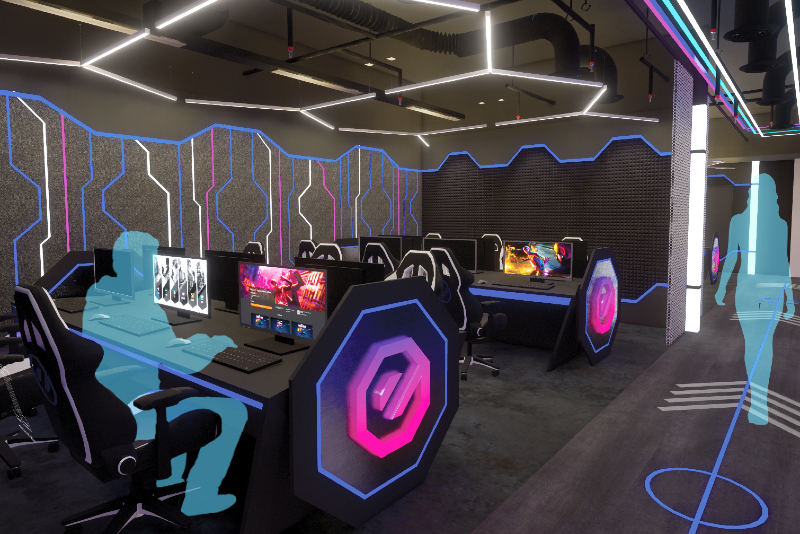
“A balance must be struck,” Ahmed stresses. “It is not to say that leaving it to Mobile Legends or PUBG is a bad thing, but there is no one to bring it to a national level. It will always be a game rather than an actual sport on a national basis.
“Currently, it is still very team-based rather than Malaysia playing against the Philippines. If the competition is on a national level, it can gear up towards section tournaments, the SEA Games and beyond. But in case you think I’m a nationalist or a person that believes in something being regulated completely, I am not. I think it is possible to have private teams while also having a Malaysian one, like in football; both can co-exist. But if we don’t step in now and find room to ensure that the government is involved, it may be difficult for us to do so after.”
MEC also serves as a funnel to esukan.gg, a registration platform for tournament participants. Moving forward, once there are more competitions in place, a point and ranking system will be introduced and it will be used by MESF to select top players for MSN to form the national team for tournaments.
An esports conference is also in the works to cultivate the Malaysian esports community, where gamers, publishers, developers, event organisers and sponsors can come together and network while creating opportunities for youths to explore esports as a viable career. “And at the end of the year, we will have an esports hub in Puchong, fully erected and developed,” Ahmed adds. “We are turning our hall at Spacerubix, which is about 10,000 to 12,000 sq ft, into the hub.” But that is only the first of many to come.
spacerubix_puchong.jpg
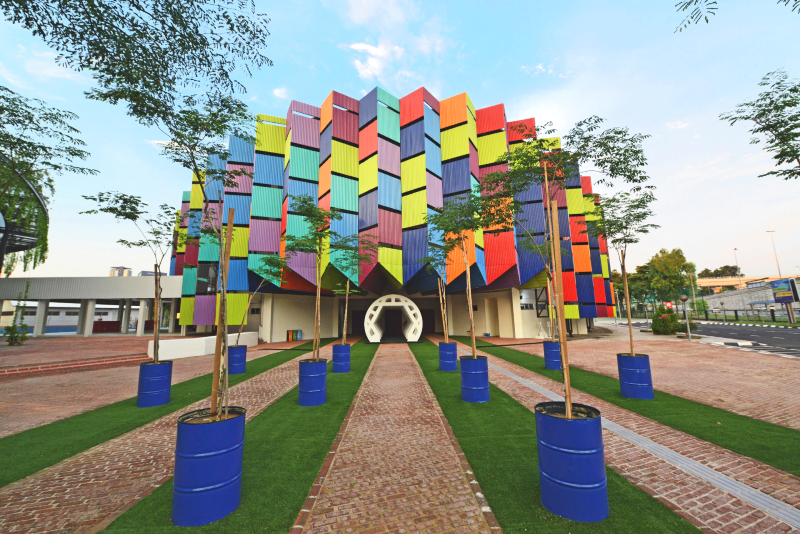
The goal is to allow youths from anywhere, including the rural parts of Malaysia, to have access to esports. “We hope to have satellite hubs across the country but not all of them have to be fully government-owned,” he points out. “Public-private partnerships are always welcome at ESI.”
But are Malaysians ready for this?
Ahmed thinks advocacy is important. “It’s about culturalisation and for it to really be embraced and enjoyed by all walks of life. I know for a fact that this bit about parents not understanding their kids who are so engrossed in esports is not necessarily true anymore. Some of my peers, who are gamers themselves, have become parents too and are open to letting their kids go into esports.” But for those who are still sceptical, it will take time. “At any given point, if there is a shock to the ecosystem, it will be difficult and there will be backlash.”
In recent years, esports has been more openly recognised in Southeast Asia. It made its debut in the 2019 Southeast Asian (SEA) Games and will return this year in the 2021 SEA Games in Vietnam. Closer to home, the Sukma Games also incorporated esports for the first time last year.
“The idea and culture is slowly being accepted and embraced by Malaysians. Eventually, it will no longer be ‘What is esports?’ and ‘Is esports sports to begin with?’ and will move past that. Next, it will be ‘How do we become better as a nation?’ and ‘How do we bring the tournament to Malaysia?’ We are getting there and we will get there.”
This article first appeared on Mar 1, 2021 in The Edge Malaysia.


